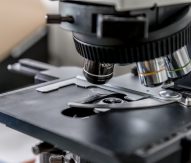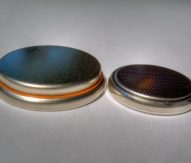
Research into revolutionary battery technology
Research by the University of Leicester, UK, into alternatives to conventional batteries has been boosted by funding from the European Union Horizon 2020 Framework Programme.
Professor Karl Ryder and Professor Andy Abbott from the Materials Centre in the Department of Chemistry have won EU funding for a blue-skies project aimed at developing a new and revolutionary type battery based on aluminium and sulphur.
The project SAlBAGE (Sulphur-Aluminium Battery with Advanced Polymeric Gel Electrolytes) is a consortium of EU universities and a battery testing company.
The total value is €3m of which €545,000 will go to Leicester.
The project aims to deliver a new type of battery based on more abundant, cheaper and safer aluminium (rather than lithium).
The project is funded under the EU (Horizon 2020) Future Emerging Technologies scheme which is the most competitive of the EU funding mechanisms.
This award is the first of its type for the University of Leicester.
In the SAlBAGE Project, a new secondary Aluminium Sulfur Battery will be developed. An aluminium negative electrode will be combined with a sulfur positive electrode including the unprecedented use of redox mediators, to facilitate sulfur reaction kinetics and boost performance.
The new battery is expected to have a high energy density (1000Wh/kg) and low price compared with the current Li-ion technology.
Ryder, from the university’s Department of Chemistry, said: “We have been working towards this for a while now with projects in metal ion chemistry in new and novel types of ionic liquid electrolytes. The Leicester group is well known in the academic community as well as in the materials finishing industry, as a source of expertise for ionic liquids. That is our role here.”
Abbott, also from the Department of Chemistry, added: “Our recent involvement with other European projects in battery chemistry and recycling, PolyZion and CoLaBATS, has increased our profile in energy research and we are members of the Energy Research Accelerator.”




